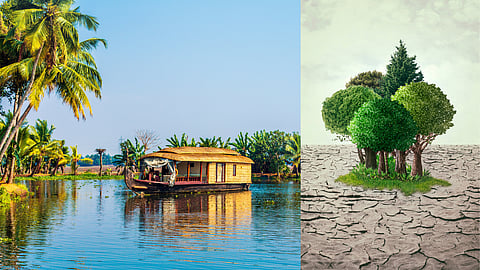

Kerala has been included in Fodor’s Travel ‘No List 2025’, which highlights 15 popular destinations around the world that are beginning to suffer from over-tourism and environmental degradation. Kerala is listed under the category ‘Destinations Beginning to Suffer’ due to concerns about the state’s handling of tourism and its impact on the environment.
The report focuses on two major environmental concerns: landslides in Wayanad and the deterioration of lakes and backwaters, including Vembanad Lake. Vembanad, which is the largest lake in Kerala, is facing significant ecological stress due to pollution, unregulated construction along its shores, and a reduction in its water quality. The over-exploitation of the lake for tourism and other human activities has contributed to its environmental decline, affecting both biodiversity and the livelihoods of local communities dependent on the lake.
Fodor’s also points to the growing risk of landslides in Wayanad district, noting that Kerala accounted for nearly 60% of India’s landslides between 2015 and 2022. Rapid urbanisation, deforestation, and unregulated development are exacerbating the natural disaster risks in the region, with recent landslides in Mundakkai and Chooralmala in 2023 causing significant loss of life, including over 400 deaths. The state's development model, which has disturbed the natural water flow, has further heightened the vulnerability of the area to such disasters.
Kerala has seen substantial growth in tourism, with 21.8 million domestic visitors and over 640,000 international tourists in 2023 alone. Tourism reportedly contributes about 10% to the state’s GDP, making it a vital sector for Kerala's economy. However, this surge in visitors has raised concerns about the sustainability of tourism in the region. The increasing number of tourists has placed additional strain on the environment, contributing to issues such as overcrowding, pollution, and the degradation of natural resources.
Despite these concerns, Kerala's tourism department has attempted to counter the negative perception that areas like Wayanad are unsafe due to natural disasters. Campaigns promoting the safety of the region, including efforts by politicians like Rahul Gandhi, have been launched to reassure visitors. However, experts argue that unless there is more effective management of tourism and urbanisation, the long-term viability of Kerala’s tourism sector could be at risk.
Kerala is not the only destination facing the pressures of over-tourism. Other prominent places on the Fodor’s ‘No List 2025’ include Venice, Machu Picchu, and Barbados, which are also grappling with the environmental and infrastructural challenges posed by large numbers of tourists.